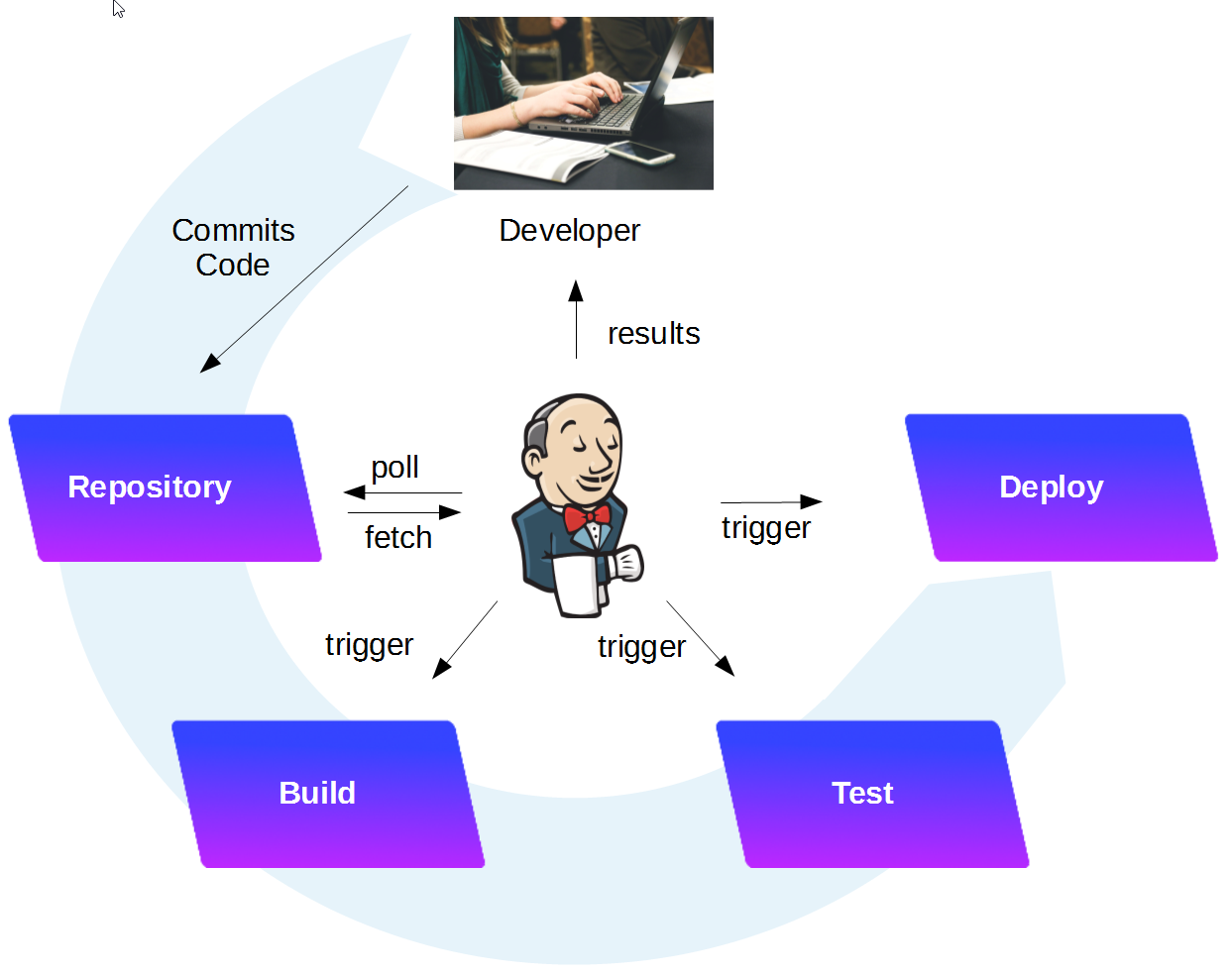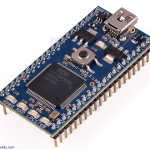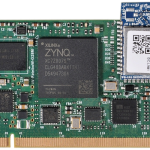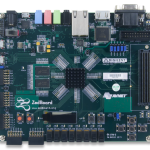Jenkins automation is revolutionizing the way developers manage large-scale software projects by streamlining essential processes, including software builds and automated testing. As a robust open-source tool, Jenkins facilitates continuous integration, ensuring that code changes are seamlessly incorporated into production environments without disruptions. With its adaptability to non-x86 architectures, Jenkins stands out among other automation solutions, catering to diverse computing needs beyond traditional setups. The innovative use of Jenkins agents enhances its ability to perform tasks efficiently, making it an invaluable asset in software automation. As projects expand, not only does Jenkins promote smoother operations, but it also allows teams to respond quickly to changes, ultimately improving project outcomes.
When it comes to software automation, few tools can match the power of Jenkins, a cornerstone in the realm of open-source continuous integration. Leveraging Jenkins enables developers to maintain high velocity in their workflows, ensuring that integration and deployment processes are as smooth as possible. This versatile platform supports various architectures, including non-x86 options, broadening its appeal across different environments. Utilizing a network of Jenkins agents, teams can delegate tasks effortlessly, optimizing resource allocation and improving efficiency. For software engineers and tech enthusiasts alike, adopting Jenkins as part of their development strategy presents numerous advantages, making it a top choice for automation in modern software development.
Understanding Jenkins Automation in Software Projects
Jenkins automation serves as a crucial tool in managing large-scale software projects. With its ability to streamline various tasks such as software builds, testing, and deployment, Jenkins stands out in the open-source ecosystem. Utilizing Jenkins agents, teams can distribute workloads across multiple machines, significantly speeding up the development process. In a landscape where software delivery speed and reliability are paramount, Jenkins allows for continuous integration (CI) practices that enhance collaboration among developers and reduce friction in the deployment pipeline.
Moreover, the versatility of Jenkins automation enables it to adapt to various infrastructures, including non-x86 architectures. This adaptability ensures that teams can leverage the benefits of CI regardless of their underlying hardware. By effectively utilizing Jenkins for automation, organizations can enhance their overall efficiency and ensure higher-quality software releases, thus staying competitive in the fast-paced tech environment.
The Rise of Non-x86 Architectures in Jenkins Automation
As the tech industry shifts towards more diverse computing environments, Jenkins automation is also evolving to support non-x86 architectures like ARM and RISC-V. Historically, Jenkins has been synonymous with x86 infrastructure, which is seeing a decline as new architectures gain traction. The showcase by [poddingue] at FOSDEM illustrates the significant potential of Jenkins running on multiple different frameworks. This shift not only emphasizes the flexibility of Jenkins but also highlights the community’s commitment to inclusivity in the automation space.
Adapting Jenkins to non-x86 platforms empowers developers to use low-power and cost-effective solutions for their automation needs. For example, miniJen’s hardware demonstration featured by [poddingue] utilized single-board computers, which are efficient in terms of power consumption and performance. This represents a revolutionary way of using Jenkins agents, allowing for scalable and cost-effective CI processes. With ongoing innovations, Jenkins continuously extends its reach to accommodate various hardware architectures, fostering a more inclusive approach to software development.
Maximizing Software Automation with Jenkins Agents
Jenkins agents play a pivotal role in software automation, allowing tasks to be distributed effectively across different machines. By using Jenkins agents, teams can set up a CI/CD pipeline that caters to multiple environments, which is essential for modern software development. This setup helps to automate the testing and deployment processes, thus reducing manual workloads and minimizing human errors. Jenkins easily integrates with various tools and provides status updates through notifications, making it an indispensable asset for development teams.
Leveraging Jenkins agents can significantly enhance a project’s scalability. As projects grow in complexity, having a dedicated setup where agents can handle specific tasks ensures that the CI pipeline remains efficient and responsive. Additionally, this architecture allows for parallel processing, meaning that tests and builds can occur simultaneously, leading to quicker feedback loops. In this way, Jenkins not only improves productivity but also promotes a culture of continuous integration within development teams.
Continuous Integration: Transforming Software Development
Continuous integration (CI) has become a cornerstone practice in modern software development, significantly transforming how developers collaborate and deliver their products. Utilizing Jenkins automation, organizations can implement CI effectively, enabling regular updates and integrations to the codebase. This leads to quicker identification of integration issues, as the CI process incorporates automated testing at every stage, ensuring that new changes do not break existing functionality.
Moreover, CI fosters transparency among team members and enhances collaboration, as developers can view real-time project statuses and test results. By integrating Jenkins with version control systems, developers can seamlessly manage their code and deploy significant updates with confidence. This streamlined approach not only accelerates the delivery cycles but also leads to a higher quality of software, enabling teams to rapidly respond to user needs and market changes.
The Benefits of Open-Source Jenkins for Software Automation
One of the most significant advantages of using Jenkins lies in its open-source nature. This aspect not only allows for extensive community support but also fosters innovation among developers who can contribute to its continuous improvement. The rich ecosystem of plugins and integrations makes Jenkins a highly customizable and flexible solution for various automation needs in software development. Organizations harnessing Jenkins for their automation efforts tap into this vast resource, leading to improved workflows and task management.
Open-source Jenkins also facilitates transparency within projects, allowing companies to audit and modify their automation processes as needed. As security and compliance become increasingly important, having a tool that is open for scrutiny helps organizations ensure that no unnecessary vulnerabilities exist in their automation practices. This level of adaptability and trust makes Jenkins an appealing choice for software teams looking to enhance their automation capabilities.
Exploring Jenkins on Multiple Architectures
As technology advances, the importance of exploring Jenkins on various architectures becomes paramount. The demonstration at FOSDEM, which showcased Jenkins running on non-x86 systems such as arm8v and RISC-V, illustrates significant opportunities for developers looking to innovate beyond conventional frameworks. This exploration not only proves that Jenkins can perform on diverse hardware platforms but also encourages experimentation amongst the developer community.
Utilizing Jenkins in such varied environments paves the way for unique applications and improved resource utilization. Developers can leverage lightweight systems for specific tasks, reducing costs and energy usage while maintaining system robustness. Such flexibility and capability can boost interest and investment in alternative architectures, promoting a broader understanding and application of continuous integration methodologies across the tech landscape.
Innovative Demonstrations: Showcasing Jenkins in Action
Innovative demonstrations, such as the one led by [poddingue], highlight the practical applications of Jenkins in automation. At events like FOSDEM, live demonstrations provide insights into the capabilities and functionalities of Jenkins across diverse hardware. Such engaging presentations not only captivate audiences but also encourage developers to think creatively about their automation strategies, inspiring them to replicate or innovate upon these ideas in their projects.
These showcases further emphasize the hands-on aspect of learning and applying Jenkins in real scenarios. With resources like blog posts detailing setups and repositories of open-source files, attendees and interested developers gain a thorough understanding of how to implement similar frameworks. This ripple effect can lead to a stronger community around Jenkins, ultimately driving further advancements in automation.
The Future of Jenkins: Embracing Change in Software Automation
As software development continues to evolve, so does Jenkins, adapting to new challenges and technologies. The move towards supporting non-x86 architectures reflects a broader trend of diversification in computing environments. Jenkins is at the forefront of this evolution, actively promoting innovations that enhance automation capabilities across various platforms. Its ability to remain relevant by incorporating cutting-edge practices ensures that it will continue to be a vital tool for developers worldwide.
Looking ahead, the future of Jenkins appears promising, with an active community dedicated to enhancing its features and integrations. Organizations can expect ongoing support for emerging technologies, ensuring that Jenkins remains a reliable cornerstone of continuous integration and software automation. As developers seek solutions to complex challenges in an ever-growing tech landscape, Jenkins will likely play a crucial role in enabling agile and efficient software development.
Jenkins and the Evolution of CI/CD Pipelines
Jenkins has significantly influenced the evolution of CI/CD pipelines, which are foundational to modern software development. By automating the integration and deployment processes, Jenkins allows teams to push code changes frequently and confidently. This continuous flow encourages rapid feedback, ensures higher code quality, and mitigates the risk of deployment failures. Developers can utilize Jenkins’ extensive plugin ecosystem to integrate with various tools, enabling custom pipelines tailored to specific project requirements.
Moreover, Jenkins’ adaptability allows it to fit seamlessly into existing development workflows, promoting a culture of continuous improvement. As organizations embrace Agile methodologies, the role of Jenkins in CI/CD pipelines becomes even more critical. By facilitating smooth transitions from development to production, Jenkins helps teams meet customer expectations for faster delivery and reliability, solidifying its place as a linchpin in the software development process.
Frequently Asked Questions
What is Jenkins automation and how does it improve continuous integration?
Jenkins automation refers to the use of the Jenkins open-source tool to streamline software development processes, primarily through continuous integration (CI). By automating builds, tests, and deployments, Jenkins enhances productivity and quality, allowing developers to detect and fix issues faster.
Can Jenkins automation support non-x86 architectures?
Yes, Jenkins automation can support non-x86 architectures. Recent advancements have enabled Jenkins to run efficiently on ARM and RISC-V architectures, which allows for more versatility in deployment options beyond traditional x86 systems.
How do Jenkins agents work in a Jenkins automation setup?
Jenkins agents are secondary servers that execute the tasks defined by Jenkins, such as building projects or running tests. In a Jenkins automation environment, these agents can run on various machines, including those with non-x86 architectures, providing scalability and efficient resource utilization.
Why is Jenkins an essential tool for software automation?
Jenkins is essential for software automation because it simplifies the management of the entire software development lifecycle. It allows for continuous integration, delivering rapid feedback, automating testing, and deploying applications consistently, ultimately improving software quality and team collaboration.
What unique features does Jenkins offer for continuous integration?
Jenkins offers a rich set of features for continuous integration, including support for numerous plugins, customizable pipelines, and an extensive community. This flexibility enables teams to tailor Jenkins to their specific workflows and integrate with various tools and systems.
How can I get started with Jenkins automation for my projects?
To get started with Jenkins automation, you can set up a Jenkins server by downloading it from the Jenkins open-source website. Follow the installation guide for your operating system, and explore the extensive documentation to configure builds, pipelines, and integrate your favorite tools to enhance continuous integration.
What resources are available to learn about Jenkins running on non-x86 architectures?
Several resources are available, including blogs, documentation on Jenkins’ official site, and community forums. Notably, [poddingue] provides detailed blog posts on running Jenkins on non-x86 architectures like RISC-V, offering insights into hardware integration and practical setups.
How does Jenkins help in managing build failures in continuous integration?
Jenkins provides numerous features for managing build failures in continuous integration, such as real-time alerts, dashboards for monitoring build statuses, and integration with notification systems. This allows teams to quickly respond to issues, minimizing downtime and enhancing overall development efficiency.
What is the significance of Jenkins in the realm of software automation?
Jenkins holds significant importance in software automation due to its capability to facilitate continuous integration and delivery. By automating repetitive tasks, Jenkins helps teams focus on development and innovation, speeding up time-to-market and improving product quality.
| Key Point | Explanation |
|---|---|
| Automation in Software Projects | Automation is crucial for large-scale software projects, helping with builds, testing, and deployment. |
| Role of Jenkins | Jenkins is an open-source automation tool that supports various software development tasks. |
| Adaptation to Non-x86 Architectures | Jenkins has been showcased running on arm8v, armv7l, and RISC-V architectures, indicating its modern capabilities. |
| MiniJen Hardware Setup | The miniJen demonstration uses four single-board computers for task execution and control, illustrating Jenkins’s versatility. |
| Community Contributions | Poddingue’s work in running Jenkins on RISC-V includes blog posts and resources for others to replicate the setup. |
| Continuous Integration Innovations | Recent developments in continuous integration have included visual alerts for build failures and firmware size control. |
Summary
Jenkins automation plays a pivotal role in enhancing software development workflows, especially for large-scale projects. By consistently evolving to support diverse hardware architectures and integrating seamlessly into continuous integration practices, Jenkins remains at the forefront of automation technology. The flexibility shown through innovative setups like the miniJen showcases its adaptability and relevance in the tech community. As a result, developers can harness the power of Jenkins to streamline their automation tasks, ensuring efficient builds, testing, and deployment processes.






